How Automated Responses Improve AI Efficiency


Efficient management of customer interactions while controlling costs is a key goal for many businesses.
Automated Responses is a practical solution. Businesses can save their costs associated with AI processing and give your customers quick answers by utilising predefined answers for frequently asked inquiries.
This blog will discuss how the use of automated responses can optimise resource allocation, enhance customer service operations, and result in cost savings and increased efficiency.

Automated Responses (Targeted Auto-Replies) are predefined responses triggered by specific keywords or phrases.
These automated responses can handle your frequent and routine queries without using AI processing resources.
By integrating automated responses, you can ensure immediate answers to common questions, which helps in optimizing AI usage.

To effectively use Automated Responses, it is essential to understand their features. Here’s a detailed look:
Automated Responses detect specific keywords or phrases in customer messages.
For example, if a user types “business hours,” the system automatically sends the relevant information. This precise matching ensures that routine queries are handled efficiently, reducing the need for manual intervention.
A significant benefit of Automated Responses is that they don’t consume AI credits.
You can handle an unlimited number of routine inquiries without incurring additional costs.This feature makes it a cost-effective solution for managing high volumes of standard queries.
Integrating Automated Responses with your FAQ section ensures instant answers to frequently asked questions.
This integration not only reduces AI costs but also ensures that users receive accurate information promptly.
Not all queries can be addressed by automated responses alone.
Automated Responses include escalation triggers that transfer the conversation to human agents when necessary.
For instance, if a user types “talk to a human,” the chat smoothly transitions the conversation to a live representative. This ensures that users receive appropriate assistance for more complex issues.
Automated Responses can be incorporated into chatbot flows for a dynamic interaction experience.
Automated responses can lead to more engaging interactions and detailed conversation. This flexibility improves the overall customer experience by providing a more tailored response approach.
| Feature | Description |
|---|---|
| Wildcard Support | Supports * (wildcard) to match any word. For example, “Hi *” will match “Hi there”, “Hi friend”, “Hi everyone”, etc. |
| Add Message | Option to add custom messages for automated replies. |
| Generate with AI | Use AI to generate more variations of questions to match the user input. |
| Bot Response | Allows typing and configuring bot responses. |
| Escalate to Human | Option to escalate the interaction to a human agent when necessary. |
| Assign Flow | Ability to assign specific conversation flows for different types of interactions. |
| Response Delay | Add response delay to simulate a better user experience. |
Implementing Automated Responses provides several key benefits:
Handling routine queries with automated responses reduces the demand on AI resources. This reduces AI credit consumption for common frequent queries.
Automated responses ensure that common queries are addressed instantly.
This quick turnaround enhances customer satisfaction and improves the overall user experience.
Automated responses ensure that common queries are addressed instantly.
Quick responses improve customer satisfaction and keep interactions seamless and efficient.
Quick and accurate responses to common queries contribute to a smoother interaction. Automated Responses help build a reliable and responsive customer service reputation by addressing frequent questions promptly.
Resource Allocation:
Automating routine inquiries frees up your AI system and human agents for more complex tasks.
This optimal allocation of resources enhances overall productivity and service quality.
To maximize the benefits of Automated Responses, consider the following best practices:
Set up automated responses for messages that are most frequently repeated.
Examples include greetings like “Hi” or standard questions about business hours.
Focusing on these common queries ensures effective use of Automated Responses.
Regularly review the performance of your automated responses. Analyze which queries are frequently handled and make adjustment according to your needs.
Include options for escalating to human agents in your automated responses.
If a query requires more detailed assistance, ensure that the system transitions the conversation smoothly to a live representative. This ensures that all customer needs are met effectively, even when using automated responses.
Ensure that Automated Responses are well-integrated with your existing chatbot flows for better answers. Effective integration creates a seamless experience for users and enhances the efficiency of your customer service operations.
Keep your automated responses updated based on changes in customer queries or business information. Regular updates ensure that your responses remain accurate and relevant. This practice helps maintain the effectiveness of your Automated Responses and improves overall service quality.
To set up automated responses to your chatbot follow this below tour:
Automated Responses are an effective AI tools for optimizing AI costs and enhancing customer service. By automating responses to common queries, you can manage resources more efficiently and provide quicker, more accurate replies.
Identify frequent queries, create clear responses, and integrate these features into your systems. Regularly monitor performance, make necessary adjustments, and ensure smooth escalation to human agents.
By following these guidelines, you can improve customer interactions and control costs effectively, achieving a streamlined customer service operation.
Discover how thousands of businesses are optimizing interactions with AI.
No card needed • Full access • Limited offer
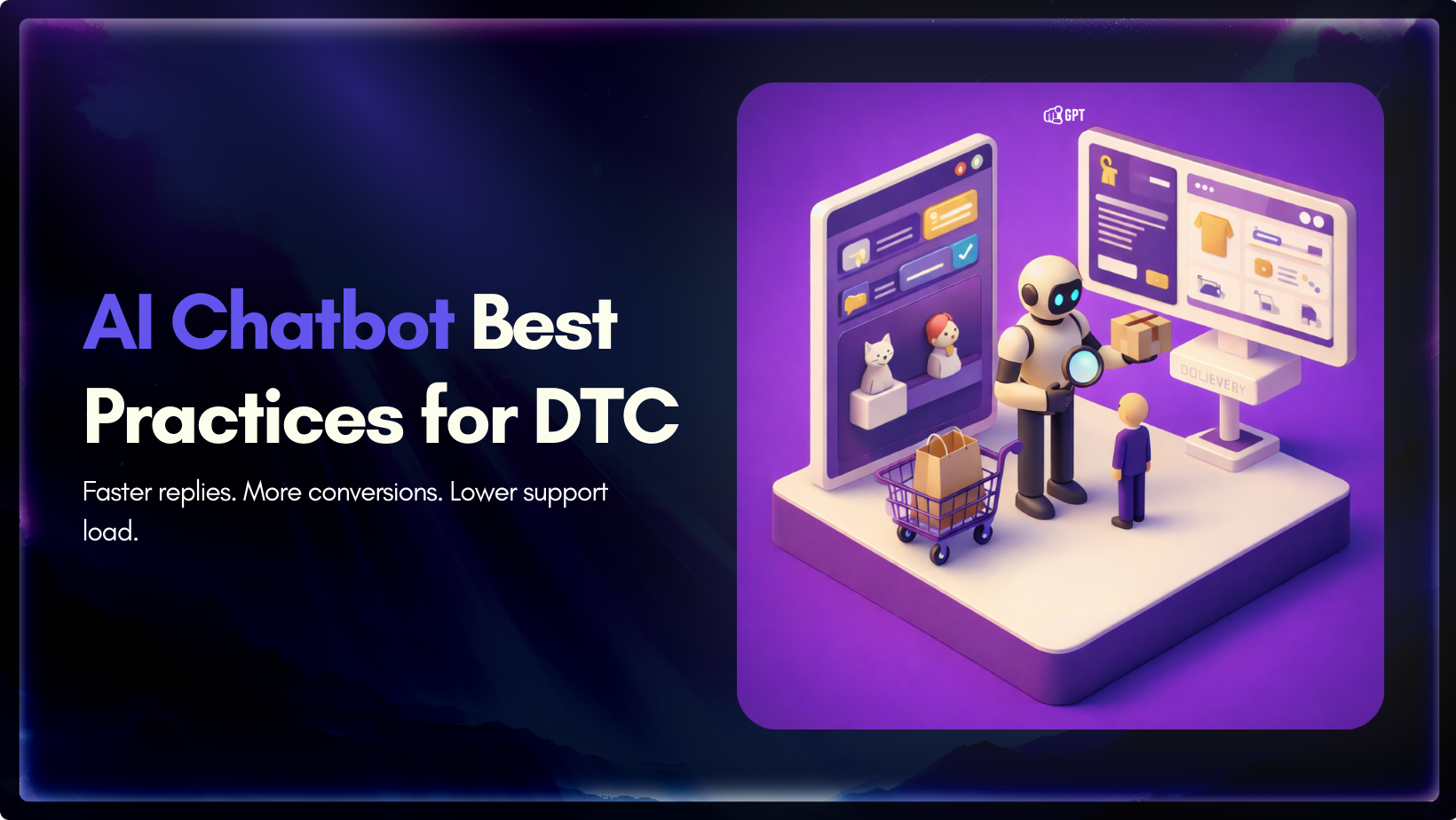
Nearly 70% of shoppers who add something to their cart leave without buying (glued). Some were never serious. But a lot of them had a question, needed a fast answer, and moved on when one did not come. That is the actual problem AI chatbots solve in DTC, when built correctly. A specific shopper, a […]

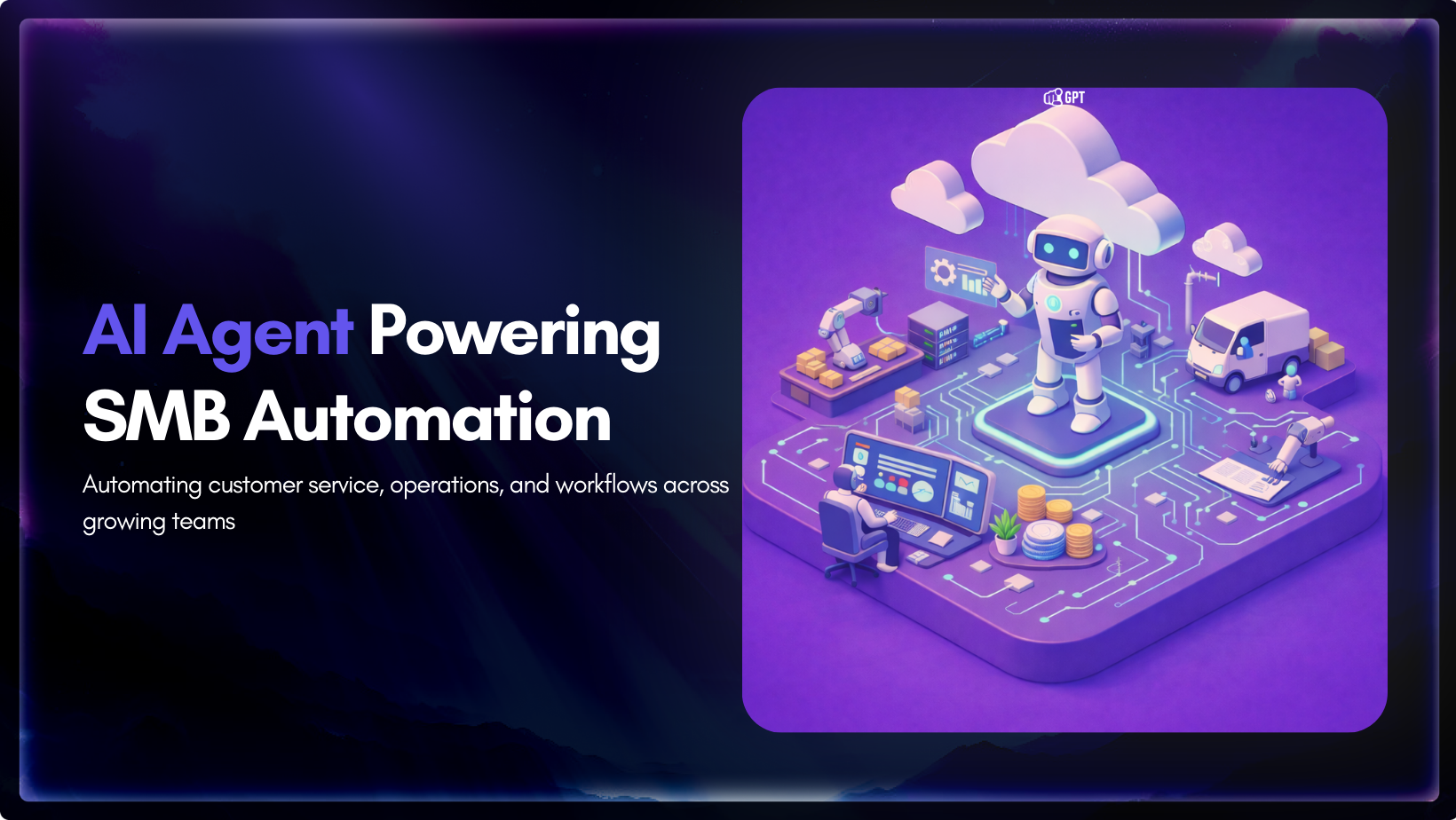
Small and medium businesses are facing a structural shift. Customers expect instant responses. Work happens across dozens of tools. Teams remain lean. Costs keep rising. Yet service quality is expected to match large enterprises. For years, businesses depended on chatbots, helpdesks, and manual workflows. These systems offered limited relief, handling basic questions and ticket routing […]

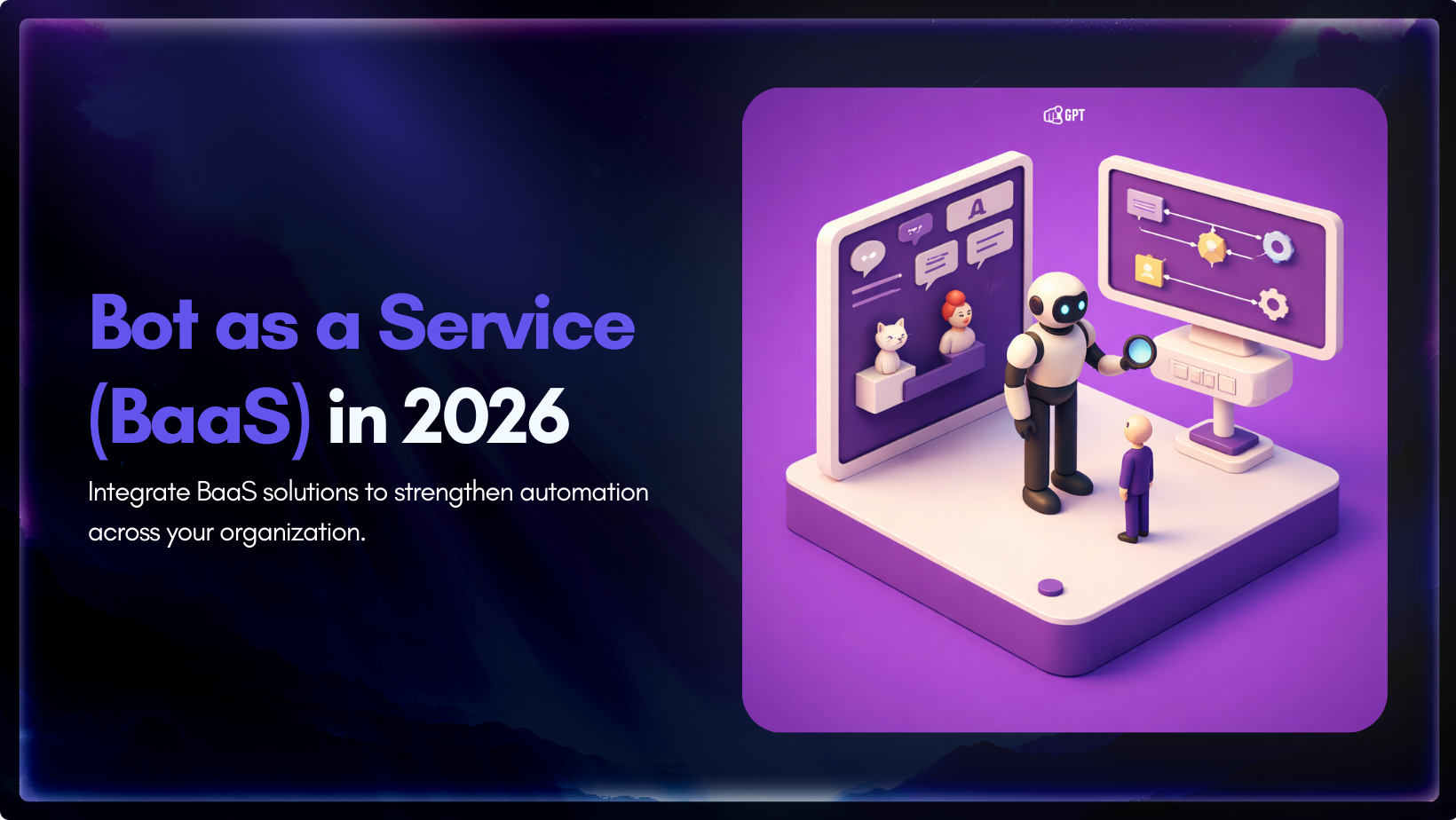
Automation defines how modern enterprises execute, respond, and grow. Customer conversations are handled by AI. Transactions move through automated workflows. Approvals route across departments without manual follow-ups. In high-performing organizations, intelligent systems are embedded directly into revenue operations, service delivery, finance, and internal support. Investment trends confirm this shift. The global conversational AI market surpassed […]

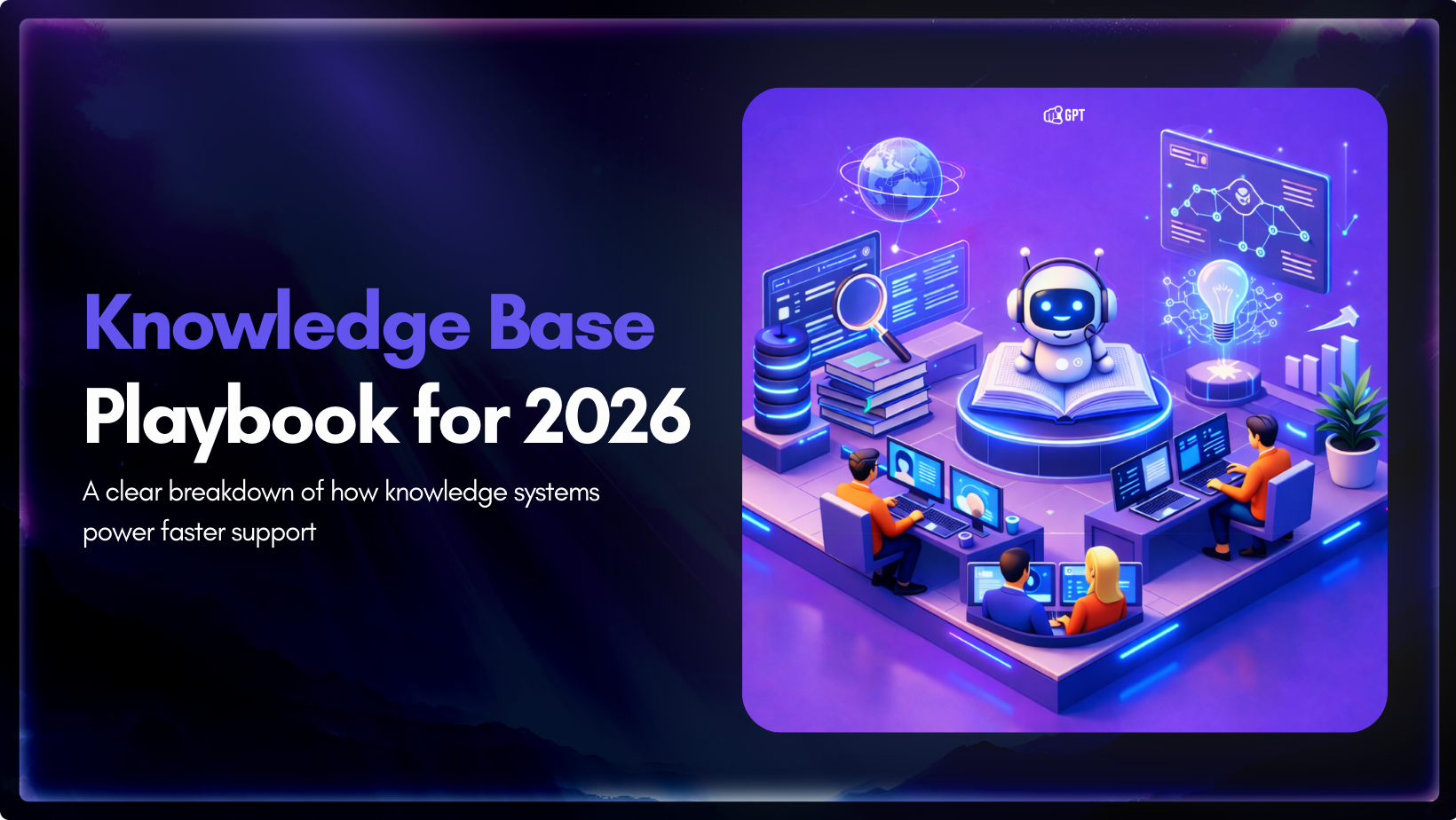
Access to clear, accurate information now sits at the center of customer experience and internal operations. People search first when setting up products, reviewing policies, or resolving issues, making structured knowledge essential for fast, consistent answers. A knowledge base organizes repeatable information such as guides, workflows, documentation, and policies into a searchable system that supports […]

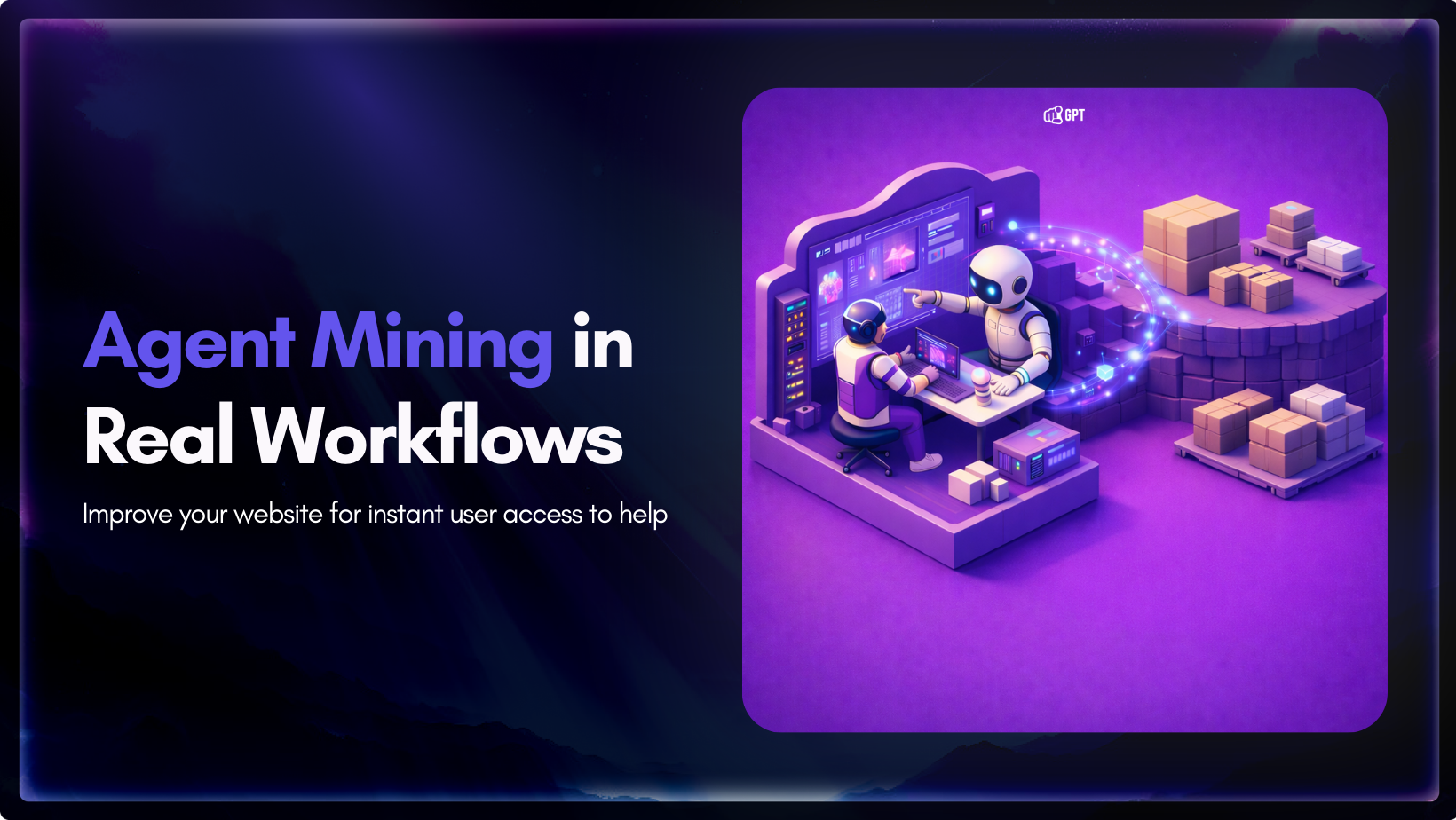
TL;DR Agent mining shifts AI from answering questions to executing real work across systems through controlled, repeatable workflows with verification. By automating repetitive operations with guardrails and observability, agents reduce friction, improve consistency, and let humans focus on decisions and edge cases. For a decade, AI was mostly framed as something that answers. It explains, […]

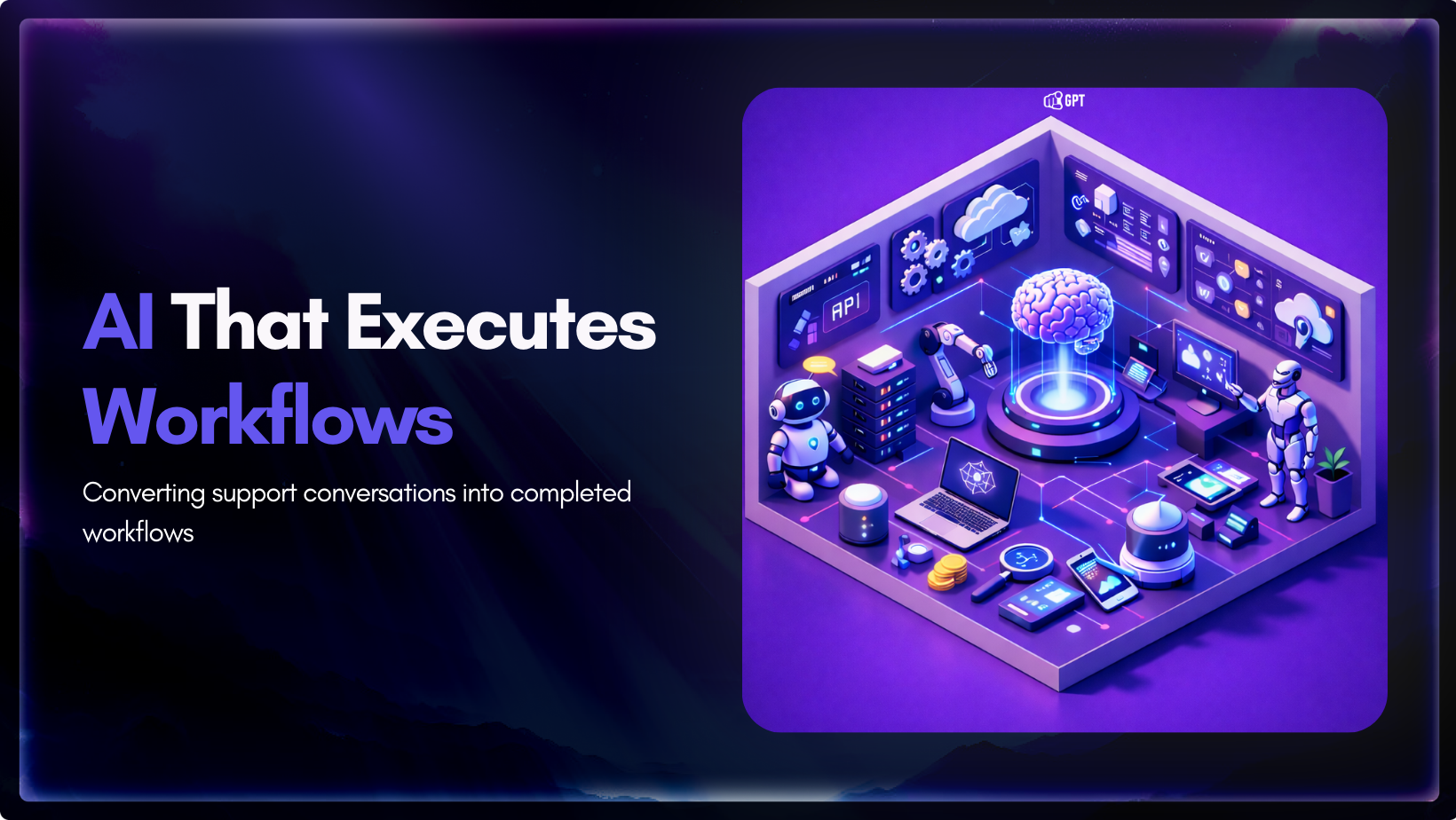
Say “AI” and most people still think ChatGPT. A chat interface where you type a question and get an answer back. Fast, helpful, sometimes impressive. Three years after ChatGPT went viral, surveys show that’s still how most people think about AI. For many, ChatGPT isn’t just an example of AI. It is AI. The entire […]
